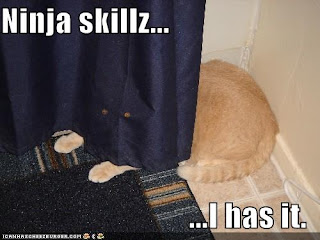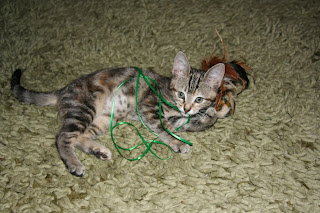Recently Bob mentioned that he'd re-read
The Corrections, the novel by Jonathan Franzen about three siblings coming home for Christmas in the midwest. It was a minor coincidence, because I'd been thinking about re-reading it. Then another friend re-read it, and another... And so I bent myself toward it, despite the book's length exceeding my policy (recently enacted, born of laziness) to avoid books over 500 pages. But it beckoned, and I finally finished it.
There's much in the book that doesn't fit in this blog. Much kneeling before, rather than leaning into, the wind. And we won't have any of that. But as writers, I though Jess and Mark might appreciate a few quotations from the book. There's a couple about cooking (the Entree section sucks without Jess) and a few about family, all chosen because, to quote Martin Amis, Franzen has a way of writing flat-out. Which by itself is sometimes enough.
-- Jason
"She loved the deep stillness that underlay the din. A good crew was like an elective family in which everyone in the hot little world of the kitchen stood on equal footing, and every cook had weirdness concealed in her past or his character, and even in the midst of the most sweaty togetherness each family member enjoyed privacy and autonomy: she loved this."
*
"Cooks were not supposed to be political. Cooks were the mitochondria of humanity; they had their own separate DNA, they floated in a cell and powered it but were not really of it."
*
"Oh, here," Enid said, leading Denise to the front door. "I want you to hang the last ornament on the advent calendar."
"Mother, why don't you do that."
"No, I want to see you do it."
The last ornament was a Christ baby in a walnut shell. Pinning it to the tree was a task for a child, for someone credulous and hopeful, and Denise could now see very clearly that she'd made a program of steeling herself against the emotions of this house, against the saturation of childhood memory and significance. She could not be the child to perform this task.
"It's your calendar," she said. "You should do it."
The disappointment on Enid's face was disproportionately large. It was an ancient disappointment with the refusal of the world in general and her children in particular to participate in her preferred enchantments.
*
"When she got a little older, Chip brought her along to the mall with his girlfriend of the moment. There was no greater bliss for her at ten and twelve than to be so included: to take instruction from Chip in the evils of late capitalism, to gather couturial data on the girlfriend, to study the length of the girlfriend's bangs and the height of her heels, to be left alone for an hour in the bookstore, and then to look back, from the top of the hill above the mall, on the silent slow choreography of the the traffic in the faltering light."
*
"Here were the familiar tan tiles of the stall. The tiles, like every other physical constituent of the house were suffused with the fact of their ownership by Enid and Alfred, saturated with an aura of belonging to this family. The house felt more like a body -- softer, more mortal and organic -- than like a building."






























 Taking in the quiet of falling snow; interrupted only by the sounds of skidding cars coming down the street. Hey that’s interesting; watch the fools in cars without chains for a while. Laugh at my neighbor’s Christmas lights – the snowflakes that look like they are moving toward his front door. Shake my head. Go back to the fire and look out the window onto a snowy Petanque court. Think of Jess; catching her own boule-gone-astray and making it look graceful and intentional. Hurry back Jess; we’ve got post-skiing beers to savor with you.
Taking in the quiet of falling snow; interrupted only by the sounds of skidding cars coming down the street. Hey that’s interesting; watch the fools in cars without chains for a while. Laugh at my neighbor’s Christmas lights – the snowflakes that look like they are moving toward his front door. Shake my head. Go back to the fire and look out the window onto a snowy Petanque court. Think of Jess; catching her own boule-gone-astray and making it look graceful and intentional. Hurry back Jess; we’ve got post-skiing beers to savor with you.



 I hate to use this forum for my own personal issues but something has come up that I need to explain. I apologize for using this avenue but I think that Jess will understand and I have to say that to some extent her strength during this difficult time has inspired me to face my own demons and attempt to exorcise them. Like Edward Norton in Fight Club I have been living a double life, however my double is not Brad Pitt handsome, he looks strangely similar to myself save for the occasional side saddle cap and sagging jeans. I am a K-Duk Dee-jay!
I hate to use this forum for my own personal issues but something has come up that I need to explain. I apologize for using this avenue but I think that Jess will understand and I have to say that to some extent her strength during this difficult time has inspired me to face my own demons and attempt to exorcise them. Like Edward Norton in Fight Club I have been living a double life, however my double is not Brad Pitt handsome, he looks strangely similar to myself save for the occasional side saddle cap and sagging jeans. I am a K-Duk Dee-jay! 





 Jess --
Jess --




